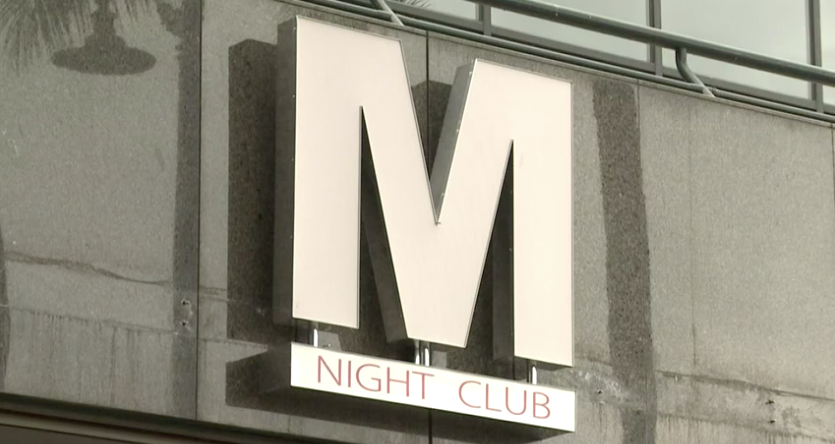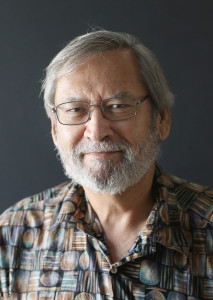Importing and selling illegal fireworks in Hawaii made millions of dollars for Mike Miske, a witness testified last week.
Editor’s note: This article is reprinted with permission. It first appeared in Ian Lind’s blog, .
On Sept. 29, 2015, a former manager at Mike Miske鈥檚 Kamaaina Termite and Pest Control told federal investigators 鈥渢hat Miske utilized a group of guys to provide 鈥榤uscle鈥欌€� according to several similar affidavits by an FBI agent in support of search warrants filed in court less than two months later.
The agent鈥檚 affidavit explained the term 鈥渕uscle鈥� meant the men were used for 鈥減rotection, extortion and violence.鈥�
The former manager, now an FBI confidential informant, said the group included John Stancil, Wayne Miller, Mike Buntenbah and Alfredo Cabael Jr. A fifth man was reportedly part of the group, but is not named here because he has not yet been charged with any crime, or appeared as a witness in the case.
Stancil and Buntenbah were charged along with Miske and 10 other co-defendants, while Miller was charged separately. All have pleaded guilty and admitted to being associated with Miske racketeering enterprise, and carrying out a variety of criminal acts at Miske鈥檚 direction, including physical assaults.

Cabael has not been charged in this case, but cell phone records obtained in 2015 showed he kept in touch via two burner phones used by Miske.
According to the FBI affidavit:
“According to CI (confidential informant) reporting, Cabael was Miske鈥檚 ‘go to guy’ who did Miske鈥檚 ‘dirty work.’ In March 2014, according to the U.S. Coast Guard Investigative Service, Cabael was the owner鈥檚 representative for Miske鈥檚 FV (Fishing Vessel) Rachel. Cabael鈥檚 lengthy criminal record from August 1990 to July 2015 include 30 arrests for abuse of a family member, reckless driving, terroristic threatening, drunk driving, theft, criminal trespassing, and burglary.”
Miske is standing trial alone after all 12 of his former co-defendant pleaded guilty, including his brother, John Stancil, who appeared in court to enter his guilty plea just an hour before the trial was set to get underway.
Cabael appeared in Honolulu鈥檚 Federal District Court this week as a prosecution witness against his former friend and boss. This account is based on notes taken by volunteer trial observers. It is not a full review of his testimony, nor does include the substance of his cross examination by Miske鈥檚 attorneys. And, of course, the validity of the testimony will ultimately have to be determined by members of the jury.
That said, what a story he is telling.
Indebted
Alfredo Cabael now lives in Utah, where he works as an area manager for FedEx. He previously lived in Hawaii, and worked at Miske鈥檚 Kamaaina Termite and Pest Control for 12-13 years.
Cabael said that he hung out with older friends and got into the wrong crowd. He discovered meth when he was 16, and soon used it daily. He went into drug treatment, was clean for a while, relapsed, was able to get back into rehab, got clean and moved into a clean and sober house in Kailua.

Several others living in the house worked security on movie sets, where Miske was then working as a Teamster driver, transporting crews and actors. Cabael heard Miske owned an auto detailing business, where he was hired and worked for about a year. Then Miske recruited him to work for Kamaaina Termite. Cabael said he was trained as a ground termite technician, and after six months began doing home inspections, ground termite treatment, and helping the company鈥檚 fumigation teams.
About this time, Cabael was divorced, and spiraled down into meth use again. After living in his car, Miske gave him a place to live, but gave him an ultimatum, apparently it was clean up or get out. Cabael said he then quit 鈥渃old turkey,鈥� then later felt indebted to Miske for his help.
Under questioning, Cabael said he and other employees did tasks for Kamaaina Termite they were not licensed to perform because there were not enough licensed employees to do all the work. He and others regularly concealed their unlicensed work from regulators when inspections were done, Cabael said.
During one Labor Department audit, Cabael was interviewed and signed a statement falsely saying he never worked more than 40 hours a week. This was not true, he said.
All overtime pay was in cash, straight time rather than time and a half, Cabael said, adding that the company ran a six days per week operation, so that all employees had overtime. Cabael admitted he had lied about the overtime and instructed others to do the same.
Cabael said that while working for Kamaaina Termite, he had slashed tents belonging to a competing company, Sandwich Isle Termite and Pest Control.
Cabael said Miske had told him Sandwich Isle鈥檚 owner, Mike Botha, had threatened him, and so Cabael started using a razor blade to slash the blue fumigation tents used by Botha鈥檚 company.
Cabael said that since Miske had helped him get his personal life under control, he felt like he 鈥渙wed鈥� Miske, and was trying to earn his trust by doing jobs like this.
Fireworks
Cabael said Miske had traveled to China with a small group in 2008, carrying a large sum of money in order to make . Later, a 53-foot shipping container filled with boxes of a variety of professional grade fireworks was delivered to a storage bunker located in part of the former Navy ammunition depot in Waikele, near Waipio, where Cabael was told to transfer the boxes into an old war-time storage bunker.
That same year, one of Miske鈥檚 cousins, Richard C. MacGuyer, registered a new company, Island Weddings And Special Events LLC, doing business as Grand Finale Fireworks Productions, state business registration records show.
The relationship between MacGuyer and his cousin Mike went way back. In August 1993, Miske and MacGuyer were charged with criminal property damage, attempted theft, and possession of burglary tools. The case was later dismissed when prosecutors failed to meet a 鈥渟peedy trial鈥� deadline. MacGuyer was later employed at Kamaaina Termite, and was allegedly involved with Miske and other employees in sports gambling, court records show.
Cabael said MacGuyer鈥檚 new company put on fireworks shows for private parties.
Cabael said that although a few legitimate shows were done, the company was primarily a front for illegal street sales of fireworks. Cabael said Miske put him in touch with purchasers, and Cabael then delivered fireworks to them using rented trucks.
Cabael testified they handled two container loads during the first year, and three or four the second year.
He said Miske instructed him and other workers to use burner phones to avoid law enforcement. They would rent trucks in Mapunapuna, drive to the storage bunkers, load up, and make the deliveries, all the while knowing it was illegal.
Cabael said they would put paper 鈥渄ealer plates鈥� over the license plates of the trucks, as instructed by Miske. Another of Miske鈥檚 companies, Hawaii Partners, was a licensed used vehicle dealer.
Cabael said he and others used fake identification cards to access the secured storage area. His fake ID used the name James Kealoha, with a false social security number.
Cabael said he made many deliveries valued at more than $10,000. The largest delivery was a full truckload that the customer paid for with over $100,000 in cash, wrapped in plastic and vacuum sealed, with the bundles then stacked and wrapped again in plastic.
The cash was turned over to Miske, Cabael said. Based on his experience, Cabael estimated the total at close to $2 million. Cabael said he had been paid $25,000 in cash during the first 鈥渟eason鈥� of fireworks sales (a season ran from the day after Thanksgiving through New Year鈥檚 Eve), but wasn鈥檛 paid for the second season, when things fell apart.
Assault At Sand Island
Cabael said that he was driving a black Cadillac Escalade one night in 2011 and was told to pick up Mike Miske at his M Nightclub. Miske got into the Cadillac with another man, who Cabael later learned was a bartender at Miske鈥檚 club, who had also worked there under a former owner when it was known as Oceans808. The bartender, David Bass, got into the back seat, where he sat between two men who he later identified from photographs as Andrew Kim, who was known as 鈥淒rew,鈥� and Hansen Apo.

Kim and another man were charged with felony assault for an incident just outside the Waikiki Shack nightclub in 2009. Both later pleaded 鈥渘o contest鈥� to a charge of misdemeanor assault. Court files in that case described Kim as 6鈥�2鈥� and 235 pounds. His girlfriend worked at Miske鈥檚 M Nightclub after it opened in 2011.
Bass previously appeared as a witness and聽聽describing what happened after he was driven to a lonely spot on Sand Island.
Cabael said had no idea what was going on. It was about 11 p.m., dark and wet, near the ocean. They got out of the car, and there was a conversation about stolen money.
After about a minute, Kim punched the bartender in the face, knocking him down, then continued beating him. Cabael said he hit the victim once, on the body, and that Miske didn鈥檛 hit him.
They stopped, Cabael said, when the victim was dirty, bloody, his face bleeding, and appeared to have 鈥渉ad enough.鈥� Miske then took the victim鈥檚 cell phone and threw it into the ocean before they drove off, leaving the victim to find his way back.
Cabael was asked why he had helped.
He said it was his job, it was expected. And it demonstrated to Miske that he was loyal.
“I believed it would get me in better standing,鈥� he said.
 Sign up for our FREE morning newsletter and face each day more informed.
Sign up for our FREE morning newsletter and face each day more informed.
We need your help.
Unfortunately, being named a聽finalist for a聽Pulitzer prize聽doesn’t make us immune to financial pressures. The fact is,聽our revenue hasn鈥檛 kept pace with our need to grow,听.
Civil Beat is a nonprofit, reader-supported newsroom based in 贬补飞补颈驶颈. We鈥檙e looking to build a more resilient, diverse and deeply impactful media landscape, and聽we hope you鈥檒l help by .
About the Author
-
 Ian Lind is an award-winning investigative reporter and columnist who has been blogging daily for more than 20 years. He has also worked as a newsletter publisher, public interest advocate and lobbyist for Common Cause in 贬补飞补颈驶颈, peace educator, and legislative staffer. Lind is a lifelong resident of the islands. Opinions are the author's own and do not necessarily reflect Civil Beat's views.
Ian Lind is an award-winning investigative reporter and columnist who has been blogging daily for more than 20 years. He has also worked as a newsletter publisher, public interest advocate and lobbyist for Common Cause in 贬补飞补颈驶颈, peace educator, and legislative staffer. Lind is a lifelong resident of the islands. Opinions are the author's own and do not necessarily reflect Civil Beat's views.

